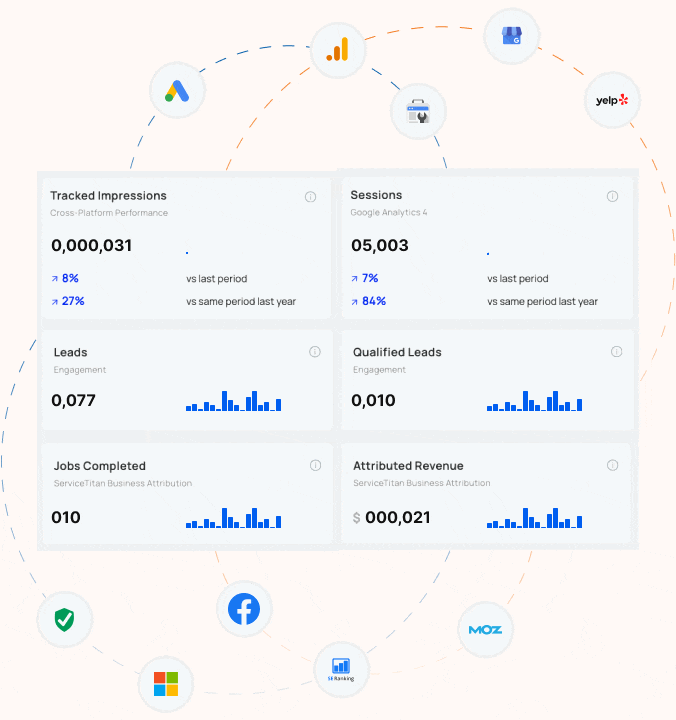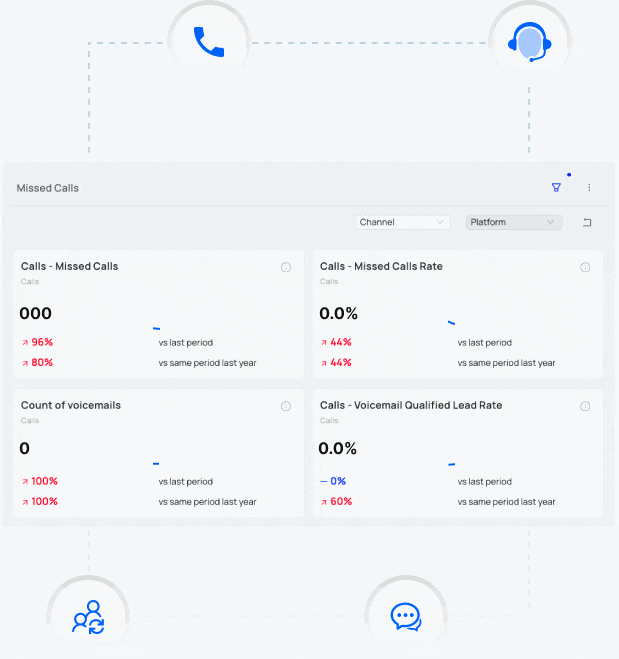



















// Home Services Marketing
SEO (search engine optimization) and paid media are the two most effective ways to increase qualified visitors to your website. If your business doesn’t dominate the first page of search results, you’re losing business to your competition. We help you maximize your search engine real estate across both paid and organic listings on search engines like Google and Bing. This drives more qualified website traffic, calls, and leads to your business (and not your competitors’).
// Website Design & Development
At Blue Corona, we take care of your website for you—from start to finish. The best part? You own 100% of everything we create—the code, content, design—everything. Our websites capture the uniqueness of your brand, deliver a seamless user experience, and serve as the launchpad for your digital marketing campaigns. We provide:


// Maximize your marketing
Marketing is only successful if your operations team does its job. At Blue Corona, we help your team capture and convert more leads by providing 24/7/365 call answering services and AI-powered website chat to help you: